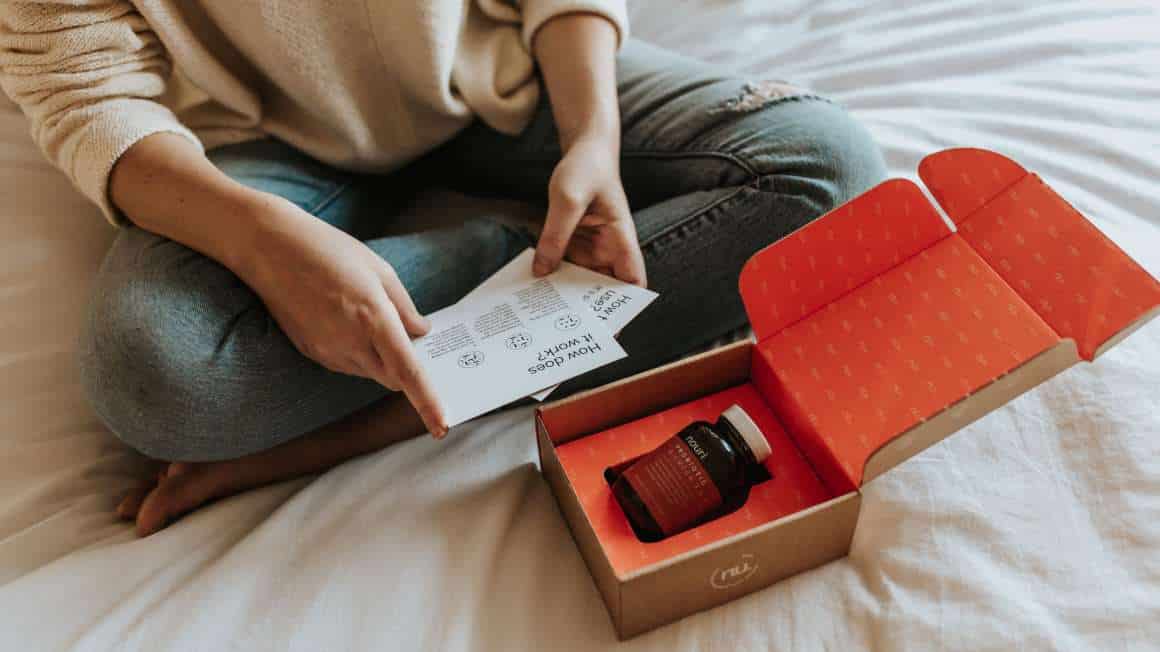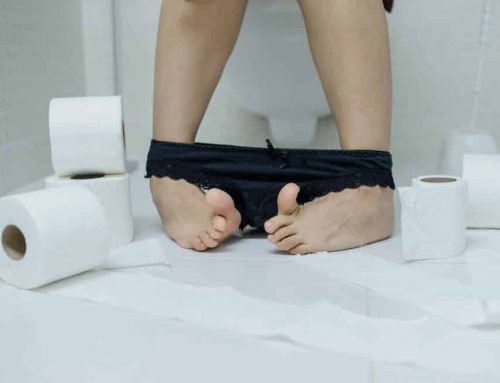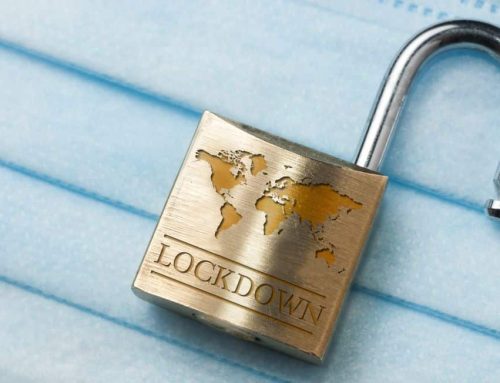Why is so much crap talked about… well, excrement? I was recently subjected to a dose of that opium for the masses, daytime TV, and ended up shouting at the frightful ‘Dr’ Gillian McKeith and the Utter, Utter Bollocks (µ²B) she was spouting about digestion. And, errrr… poop.
Nonsense like colonic irrigation ‘detoxifying’ the body – a procedure proven to have no such efficacy and documented complications. (A post is coming dealing with Aaargh! Toxins! and other ‘Detox’ Woo, none of which I have much time for – except liver transplants, obviously).

If it’s so good for us why did the US subsidiary of Danone agree to refund dissatisfied customers $35m in an out-of-court settlement for making unsubstantiated health claims? And with the European Food Safety Agency banning similar statements made by manufacturers of such probiotic supplements what’s the science behind it all?
First, ‘probiotic’ is a woolly term and not particularly scientific. But this doesn’t stop 60% of the UK population spending £200m a year on ‘probiotic’ drinks. Second, bacteria are neither ‘good’ nor ‘bad’. Some are pathogens and make us sick, the majority are benign or beneficial in terms of their impact on us. While bacteria can and do talk to each other there is no evidence to suggest it’s about moral philosophy and, frankly, they don’t really give a rat’s arse about us. Unless we’re their next meal. One of our greatest conceits is that we tend to think of ourselves as the pinnacle of evolution, when actually we are just a sophisticated social care system for the quadrillions of bacteria we carry in and on us.
Count ’em: the human body is made up of about 100 trillion cells (that’s 1014) and we carry 10-100x that number of our Microbial Overlords in our microbiome. And that’s not counting the viruses that attack them. In our colon we have around 2,000 genera and between 15,000 and 35,000 species of bacteria and other microorganisms. If you see lower numbers quoted elsewhere it’s because they’re counting the tiny proportion you can grow up in a lab. Do a genetic analysis and you start to get an idea of the mind-boggling enormousness of the biodiversity that lurks behind your Chocolate Starfish. To quote Douglas Adams on another subject “you just won’t believe how vastly, hugely, mind- bogglingly big it is“.
Let’s talk dirty. There are about 100 billion bacteria in every gram of stool. That’s quite a few. We all have similar but slightly different bacterial ecosystems in our bowels – and we tend to have the same range of bacteria as our parents. And our children – we don’t just pass on our genes. This normal gut flora protects us from pathogens and helps us digest our food. They crowd out pathogenic marauders, and many species digest the oligosaccharides we can’t, thus making those nutrients available to us. But the species you find in natural yoghurts are not the same ones you find in your gut flora. The only way you get those is by eating, well, poop. We have no microbiome when we’re born but within 48 hours or so we inherit our mothers’ gut flora and from then on we constantly ingest faecal bugs, day in, day out. But the range of microbiota we carry stays remarkably conserved; that is, our personal range of organisms stays remarkably stable throughout our lives. Many animals are coprophagic and we are too – we just don’t like to admit we are. And we ingest a kilogram a year of E. coli just from potable water. Also we all know that antibiotics kill the ‘good’ bacteria as well as the ‘bad’ ones and – for example – a course of co-amoxiclav will clear your gastrointestinal tract faster than any laxative – but do probiotics actually do any good?
So, can probiotics prevent diarrhoea?
There are many different causes of diarrhoea: antibiotic, C. diff associated disease (CDAD), foodborne infections and intoxications, travellers’ – and there is some data that suggests probiotics containing Lactobacillus will decrease the length and severity of antibiotic diarrhoea but apart from that, data is very sketchy. The interesting exception is C. diff. For CDAD the yeast Saccharomyces boulardii has been shown to be of benefit but there is a novel technique now being employed that is 95-100% effective:
Stool Transplant Therapy.
I kid you not, the cutting edge of dealing with CDAD is to take stool from a healthy relative, liquidise it and administer p.a. or via nasogastric tube. But then Jenner was lampooned for suggesting injecting Essence of Cow Zit would cure smallpox. But it did. And so vaccination was born.
The issue with probiotics is that superficially the notion has good biological plausibility: bacteria are placeholders on and in our body with 6 million years’ coexistence, filling all sorts of nooks and niches. So surely topping them up has to help? It then falls down somewhat when you realise that probiotics do not contain the majority of flora that persist in our GI tract. We only get those from eating poop. Sorry.
So What About BV?
Lactobacillus is part of the normal vaginal flora as are various yeasts but the studies into whether probiotics help prevent or cure are mostly unblinded with small cohorts and no controls – so it’s difficult to prove or disprove this. Quite simply the data just isn’t there. What is clear, though is that not all lactobacilli are the same – the ones in yoghurt and those in the GU flora are certainly not the same. Again, the studies are suggestive and plausible but still not evidential. And don’t believe all you read on the InterWebs; it might sound eminently probable and indeed many people swear it works but the plural of anecdote is anecdotes, not data.
Probiotics Cure IBS, Cancer, and Boost Your Immune System!
Here’s where it gets interesting. You can find many claims, even some in peer-reviewed academic journals claiming all this and more. Much of the research is funded by the probiotic industry. Funny that. But the European Food Safety Authority health claims panel has rejected probiotic health claim dossiers submitted by Danone and Yakult. We can expect to see much tighter regulation on health claims ascribed to foodstuffs which can only be a good thing with 130,000 new cases of type-2 diabetes a year and the upward trend of morbid obesity. It’s a nice idea that one can eat oneself healthy but gorging on probiotic yoghurts – like gorging on anything else – is unlikely to accomplish this.
One of the more fanciful claims is that eating probiotics ‘boosts’ the immune system. It is true that if you ingest large amounts of bacteria it will elicit an immune response – or to properly describe it – an inflammatory response. It’s true that if the immune system is primed by exposure to such a challenge you should get a better response to a subsequent infection. In the World of Woo they call that ‘enhancing’. But anyone who knows jack about immunology will just call it an inflammatory response because that’s all it is. I’m also not convinced that keeping oneself in a continual state of inflammatory response is healthy – yes, your immune system may respond more quickly to a challenge but your likelihood of thrombosis also increases. But I’m a simple microbiologist, not an immunologist.
Looking at some of the websites of people who sell this stuff it all looks slick but is pretty substance free in terms of science. Plenty of anecdote, as ever; some badly-designed studies in low-impact journals, all the warning signs one associates with classic Woo. Will eating probiotics make you sick? Well, no, provided you are immunocompetent and don’t have acute inflammatory diarrhoea. And yes, there is some evidence of slight benefit in some diarrhoeas but more as a prophylactic than a cure. And don’t forget that each dose of probiotic drink or yoghurt will usually contain fewer bugs than a gram of poop. And at least the poop has the right bugs in.
Perhaps we should take ‘Dr’ McKeith’s advice and eat plenty of toxic cyanobacteria as – apparently – the chlorophyll will ‘oxygenate the blood’. Right. Even assuming it survives the battery of digestive enzymes in the GI tract, chlorophyll needs sunlight to do its thing.
So I reckon the only plausible explanation for someone believing that dietary chlorophyll will oxygenate the blood is that they also believe the sun shines out of their…





Ah the delightful Dr McKeith or to give her, her full Title “Gillian McKeith”.
I have nothing against yoghurt personally. Makes a very nice Lassi
Does she really make a good lassi? I had no idea. Forgive me if I stick to the mango lassi at the world’s best Balti house – the Sunday breakfast (chana, halwa and puri – available 9-midday) is a must. The katalama is amazing too. And unsullied by dietary supplements.